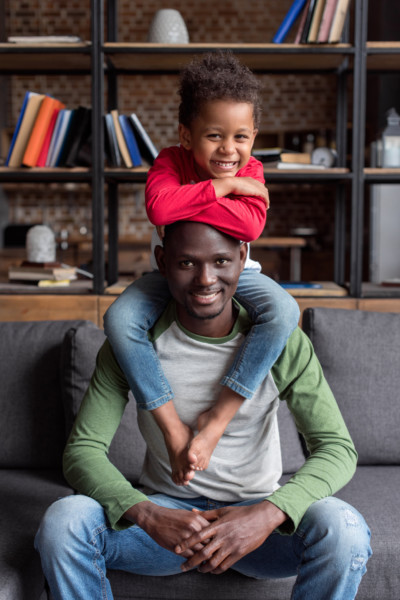 Becky couldn’t sleep. Earlier in the day, her husband and his mother, her mother-in-law, had an argument about another family member. Her husband had ended the conversation on a sour note, walking out on his mum.
Becky couldn’t sleep. Earlier in the day, her husband and his mother, her mother-in-law, had an argument about another family member. Her husband had ended the conversation on a sour note, walking out on his mum.
Becky recognizing that her husband had been needlessly rude, went in to calm her mother-in-law, and like all dutiful daughters-in-law, offered false but expected support to her mother-in-law.
Her mother in law was silent.
“Don’t mind Paul. He is really stressed at work and is just taking out on us. Mummy, don’t worry, he will apologize.”
Becky’s mother-in-law looked at her with an expression difficult to understand. She said, “You will not understand. When you start having children, then you will understand.”
The words were a shock to Becky who was already a mother to three daughters. She called her mother on the phone. But her mum didn’t offer much comfort either. Over the phone she sounded worried when she wasn’t silent. “Becky, you have to try for another baby before these people disgrace us.”
***
Mrs. John was making the long trip from Lagos to Enugu to see a ‘powerful man of God.’ All her grandchildren were female. Her friends insisted it was her evil brother-in-law who cast a spell on her children, punishing them because she didn’t share her late husband’s property with him. When the news got to her that her 10th grandchild and the latest addition to her family was yet another female, she knew it was time to take some steps spiritually.
***
Larea’s marriage took a turn for the worse when she gave birth to her first child and it was female. In her husband’s family it was expected to have male children as firstborn. His great-grandfather had 17 brothers, no sisters. They gave birth to almost 100 sons and less than 10 daughters. Daniel, her husband, had 5 brothers. Daniel was the first member of his family to have a female as a first child. Although no one said anything to Larea and her husband, their disappointment was palpable. Larea later gave birth to a boy on her third try, but didn’t quite redeem herself in her in-law’s eyes. Her husband detested being the one who brought the ‘stain.’
***
As Benson prepared for his new baby’s naming ceremony, his landlord observed all the excited activities from his balcony upstairs. The old man’s mouth turned in disgust, annoyed at the cost the young man was incurring, from food, to drinks, music, etc. Benson was excited about being a father for the second time, thankful to God for the blessing of a healthy child. On the day of the naming ceremony, the landlord who couldn’t keep his perplexity to himself any longer called Benson aside and asked him, “Why are you spending so much money on another baby girl, abi is it a boy?” Benson confirmed that it was indeed a girl. The old man got even more annoyed at this. “So all this activity is for another girl? Ha, you are a foolish boy!”
***
While female children are not necessarily neglected in many homes, male children are preferred.
Why do people prefer boy children? In developing countries like ours, this preference is understood to be realistic as boys continue the family name. Men have more rights and are likely to earn more. Traditionally, people don’t even bother with the pragmatics. They just know that a boy child makes it all complete.
In Nigeria, people who do not have male children still struggle to convince friends and family that they are happy and not searching for ‘completeness.’ In the 21st century, women have made giant strides in areas of technology, leadership, education, and are more ambitious and unafraid to demand a seat at the table. But 70% of first time pregnant parents still want a boy in Nigeria. Having a boy child first takes away the tension and fear of having a female as one’s second child, especially in this day that family sizes are getting smaller. If you have your male child first, its more like accomplishing a task and moving on to other less important things.
A lot of women are even more afraid of birthing daughters. They’re afraid for their security in their husband’s house. Some are worried about what the future holds for a girl, females being susceptible to sexual exploitation, workplace intimidation, and in several cultures can not inherit.
In many homes, girls are taught to put their brothers first. This results in many females giving up their own education just so that the males in the family can school while they sell in the market or take up unskilled labor.
There are a lot of damaging beliefs that may have contributed to the global defeat of the female sex, from patriarchy to the fact that several religions consider women as unfit and ineligible to rule or as important as men.
Nature has given women the ability to create, but this vital role is not recognized as a strength, as women still struggle for relevance in many parts of Nigeria. As a people, we must radically change our thinking for the advancement of our nation.
We can change things. The pronoun ‘he’ appears in the Nigerian constitution more than 235 times, we could start from changing this to ‘he or she’ throughout the constitution. Women should pursue the achievement of full human expression regardless of their sex, and teach their children to do so, too.
Photo Credit: Dreamstime
The post Chineze Aina: Why is There Still a Preference for Male Children in 2018? appeared first on BellaNaija - Nigeria breaking & top news to the World 24/7. Read Today.
